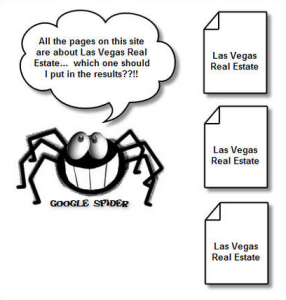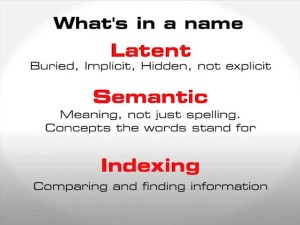Detox Yourself With Positive Energy: Deal With Negativity

 So you do write for the search engines? No, we don’t! We write only for our visitors, but we optimize it for the robots.
So you do write for the search engines? No, we don’t! We write only for our visitors, but we optimize it for the robots.
The writer breed have had to suffer the most online, what with having to change the way they write with every algorithm change.
First, they were asked to do everything possible to please the search engines. They mastered the art! Then they were told to reduce the keyword density. They complied! Forget about the search engines and think about the visitors – Sure, why not! Now write for the visitors, forget the density but keep the search engines in mind too. Phew! That was a long journey.
Let’s take a look at the content expectations of today that can result in better search engine rankings.
This is the year 2013, a year when the search engines appear to have reached the peak of their maturity (we hope). Search engines want to see their users happy. All the algorithms point in the direction of “quality content” that visitors find informative and interesting.
Yes, you have all the social networking sites to promote but SEO is still alive.
Informative content is long. It’s obvious that you can’t explain the three trimesters of pregnancy in 300 words or even 500 words. Since long content has the potential to go in-depth, providing better information to the user, the search engines love it.
The average web page featuring on the first page of Google is around 2000 words. It’s also a known fact that long and informative content gets shared more and attracts more likes. Create your content with the end-user in mind and you can’t go wrong. Create pages upon pages of worthless content and you’ll be ignored.
What is that? You don’t even want to know what keyword density is anymore. KD is a myth that lived long, but no more. It’s still good to continue using relevant keywords in your content, but use them naturally. If you’re writing content for a specific audience, the keywords automatically fit into your content. Just refrain from filling keywords where they don’t belong!
 Concentrate on your target audience but make sure you use appropriate keywords for your audience to find you. Search engines use LSI (Latent Semantic Indexing) to match the search results with what the user is searching for. They don’t just read the specific words the user types, they go deeper and try to understand the “intention” behind that search. Google is unbelievably good at that.
Concentrate on your target audience but make sure you use appropriate keywords for your audience to find you. Search engines use LSI (Latent Semantic Indexing) to match the search results with what the user is searching for. They don’t just read the specific words the user types, they go deeper and try to understand the “intention” behind that search. Google is unbelievably good at that.
For example, if a person is searching for “renal diet,” Google also relates it to “kidney diet.”
Using related keywords and synonyms, as well as variations of grammar, are all excellent ways of optimizing your content and making it more relevant.
During your keyword research, you’ll find that the small single-word keywords have thousands and millions of searches. This looks wonderful to the naïve eye, as it translates into as many visitors in their imagination. But that’s not how it works.
The single or even double word keywords have so much competition that you may stand no chance of ever beating the well-established sites. Such keywords are also not highly targeted.
For example, if you take the keyword “make money,” there are several sites that come up and many have been around for years. The keyword “make money” envelopes everything there is about making money: make money online, make money selling clothes, make money affiliate marketing, make money selling peanuts etc.
On the other hand, “make money with affiliate marketing” is a highly targeted keyword, where the user is trying to find information on making money by promoting affiliate products.
It’s easier for you to rank for long tail keywords so bear that in mind when optimizing content. The traffic you receive is targeted and ready to take action. What good are a 1000 visitors, if 999 of them are not looking for what you’re offering?
 One of the most important things you should add to your content is questions. Research the questions being asked the most and address them on your site. Incorporate questions into your content, to help people searching for those questions reach your website.
One of the most important things you should add to your content is questions. Research the questions being asked the most and address them on your site. Incorporate questions into your content, to help people searching for those questions reach your website.
For example, the person types “What is network marketing?” If you have that question on your site, there is a possibility that your website ranks for that and leads the person to your site.
You can also have a FAQ section answering all the questions, depending on your niche.
Google looks at the title tags when categorizing web pages. Search engine users will be able to see both the Title tag and Meta description. Include keywords in them but make them look natural and appealing for people.
Once you have your content ready for the users and optimized for the search engines, it should also be shared through social network sites, forums, newsletters, blogs, guest blogging etc.
Since everything today revolves around end-user satisfaction, the more shares and likes you get the more popular your content is in the eyes of the hawk-eyed robots that control your marketing online. Forget about the robots, you want to keep your visitors happy and convert them into customers.
Have you achieved a top spot in the search engines? How did you do it? Do get in touch or leave a comment if you have any questions on optimizing content.
When you visit any web site, it may store or retrieve information on your browser, mostly in the form of cookies. Control your personal Cookie Services here.